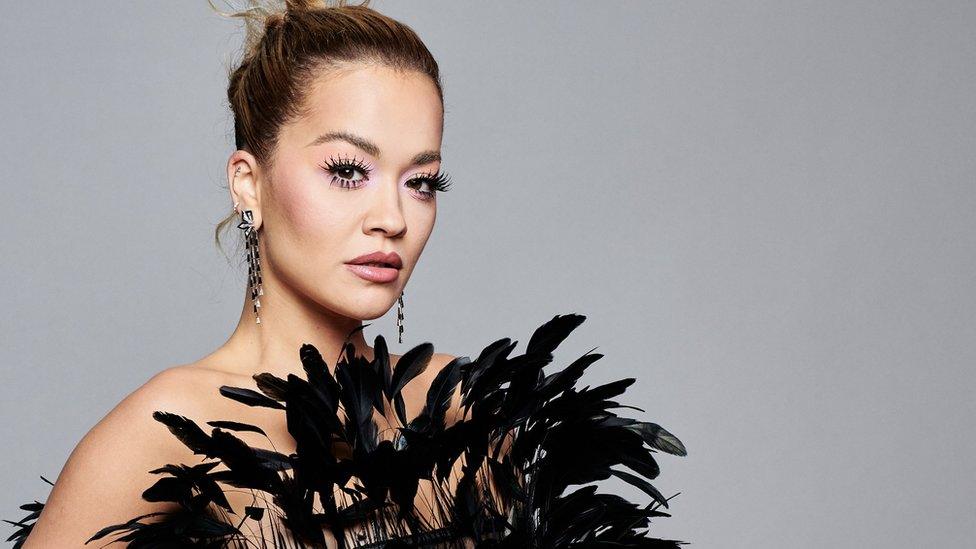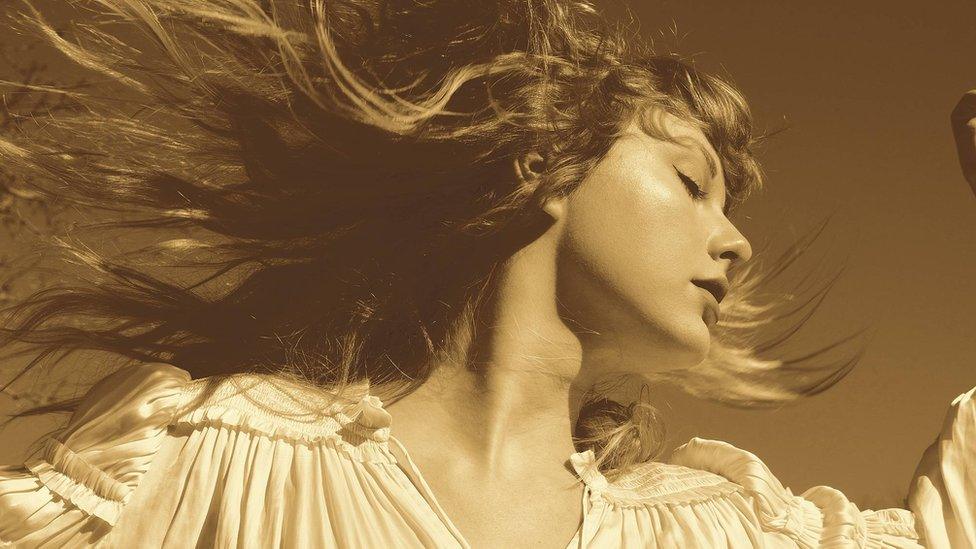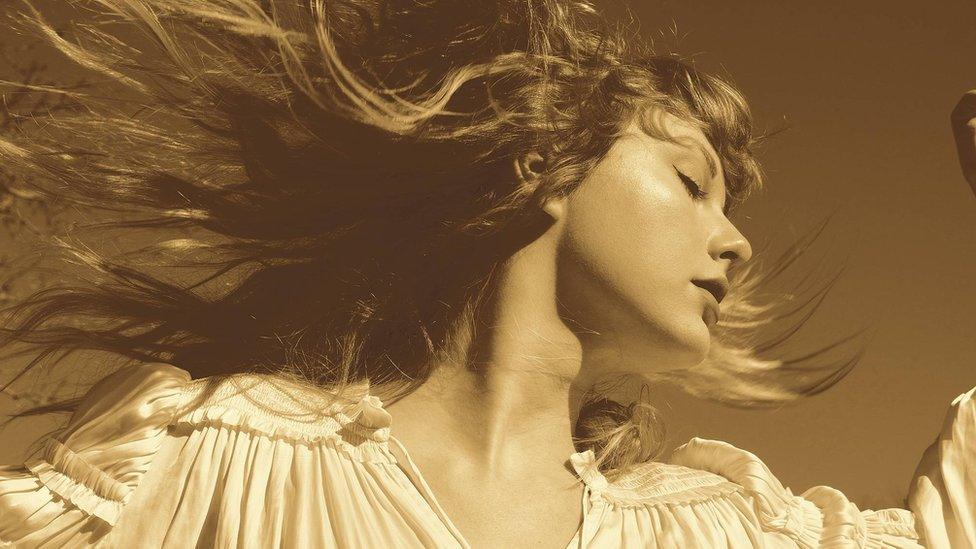Rita Ora signs record deal that lets her own her masters
- Published

Rita Ora has signed a global recording deal with BMG that gives her ownership of all future master recordings.
The star announced the move on Instagram, external, saying it was "empowering to know" she was in control of her music.
Ora was previously signed to Atlantic Records, where she scored top 10 hits including Anywhere and Let You Love Me.
Before that, she sued to be released from a contract with Jay-Z's Roc Nation, saying she had been "orphaned" by the label.
The company helped her launch her solo career in 2012, but Ora took legal action three years later, saying her career had become a low priority as Roc Nation pursued other interests in sports management and the Tidal music service.
After reaching a settlement in June 2016, Ora signed to Atlantic - but they only released one album together, Phoenix.
The record, which is certified gold in the UK, contained the hit singles Your Song (co-written by Ed Sheeran) and For You (from the film Fifty Shades Freed).
Her final release for the label was last year's Bang EP, with Kazakh DJ and producer Imanbek, which failed to chart in the UK. After that, her contract with Atlantic is believed to have expired.
She has a parallel career in film and TV, and is a judge on The Masked Singer UK.

The singer-songwriter said fans could expect to hear new music "very soon".
The musician's reputation took a hit in November 2020 after she hosted a lockdown-breaking 30th birthday party in London. However, the scandal largely faded when she made a swift apology and paid a voluntary £10,000 fine.
Signing with BMG puts Ora alongside artists like Kylie, KSI and Run The Jewels, who have also chosen to step out of the major label ecosystem.
The company's "approach to artist ownership and control is very much aligned with mine," wrote the star on Instagram.
"I am beyond excited about the new music I've been working on and can't wait to share it with you all."
She also thanked the "wonderful team" at Atlantic Records, noting that they had helped her set a record for the most top 10 singles by a British artist (13, a record she now shares with Jess Glynne).
What is a master and why is it important?

Taylor Swift is re-recording her first six albums in an attempt to regain control of her music
A "master" is the music industry term for the actual original recording of a song or album.
It is the source from which everything else stems: a CD, a stream, a download, an appearance on a movie soundtrack - they are all licensed by the person who owns the rights to the master. That person also controls any royalties or other financial gains from the recordings.
Many artists, from Prince to Rihanna and Metallica to Barbra Streisand, have fought for control of their masters.
When Taylor Swift discovered an investment company had bought the rights to her first six albums, she set about re-recording them all. As a result, she owns the masters to the new versions - and will only license those recordings for use in film and TV shows.
Why do artists give away those rights in the first place?

Kylie Minogue has seen her sales rise since signing with BMG and releasing music through her own label, Darenote
Quite simply, it has always been the standard practice.
When a label signs an unknown artist, it is essentially gambling that they'll be a success. In exchange for investing in their career, the label usually takes ownership of the masters so it can profit from any future hits.
But with the likes of Swift bringing the issue to wider attention, more artists are choosing to retain ownership of their music. Some, like Stormzy, will temporarily license a record to a label with global reach. Others choose to stay independent and self-release.
BMG, which bills itself as the world's "fourth major music company", boasts that it has "ripped up the old-school record contract" and gives artists fair deals "with no hidden deductions, no unpleasant surprises".
The deal marks a "new chapter" for Rita Ora, her manager Sarah Stennett said.
BMG's UK president of repertoire and marketing, Alistair Norbury, said he was "delighted" to welcome the singer-songwriter to the company.

Follow us on Facebook, external, or on Twitter @BBCNewsEnts, external. If you have a story suggestion email entertainment.news@bbc.co.uk, external.
Related topics
- Published23 January 2022

- Published2 July 2015

- Published30 November 2020

- Published9 April 2021

- Published6 November 2020
